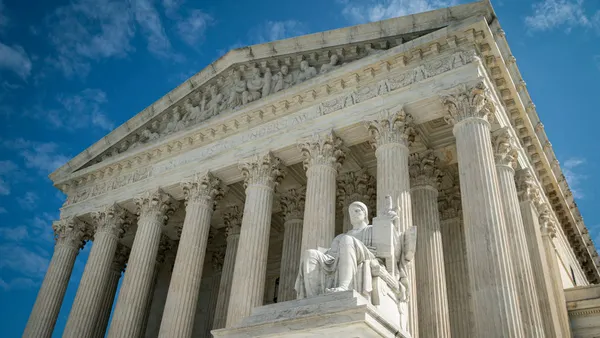Dive Brief:
- Shell Oil Co. did not violate Title VII of the Civil Rights Act when it decided not to hire a non-White applicant of Egyptian and Sudanese descent in favor of a White, British applicant, the 5th U.S. Circuit Court of Appeals held Nov. 28 (Shater v. Shell Oil Co., No. 22-20289 (5th Cir. Nov. 28, 2022)).
- The plaintiff was one of three finalists considered for a high-level management position, according to court documents. The finalists were asked the same questions and considered according to the same three criteria. While the plaintiff better fit the third factor considered, the selected candidate had experience more consistent with the first two. The panel decided the latter applicant was the best fit, court documents show.
- Ultimately, the plaintiff could not show that his lack of selection was pretextual, the 5th Circuit found. While he argued that the White candidate was preselected, noting the panel said it had not made its decision when it had, one panelist testified he could not announce the decision at the time for nondiscriminatory reasons. The plaintiff’s argument that he was “clearly better qualified” than the selected candidate also fell short, the court found — while he was stronger on one element of the criteria, the selected candidate was stronger on the other elements, making them at least similarly qualified.
Dive Insight:
Hiring often gives rise to discrimination lawsuits, and Shell’s case demonstrates how standard hiring processes can help save HR from meritless claims.
Shell selected three candidates and assembled a three-person panel for interviews, “consistent with its normal process,” the 5th Circuit noted in its decision. The panel asked each of the candidates the same questions based on three agreed-upon criteria. Two of the three panelists testified that the process was “fair and objective.” Per court documents, it appears only the three important criteria for the job were considered.
In contrast, there are multiple ways employers can steer themselves into lawsuits during hiring. Pharmaceutical company Eli Lilly ran afoul of the U.S. Equal Employment Opportunity Commission when it declared a goal of hiring “early career” candidates. The company imposed higher levels of review and approval before hiring older candidates and thereby discriminated against them, EEOC said.
Identity-based discrimination does appear to be common in hiring. Recently, a survey from ResumeBuilder found that 1 in 4 hiring managers say they’re less likely to hire Jewish applicants. When communicated and used in hiring decisions, such discrimination lands companies in trouble. A Buffalo staffing firm recently paid $550,000 to settle allegations from the EEOC that it rejected Black and female applicants or placed them in low-paying jobs due to their race or sex.
Hiring managers should keep in mind that efforts to balance and address hiring discrimination may sometimes perpetuate the issue. For instance, 1 in 6 respondents to a ResumeBuilder survey said they had been told to “deprioritize White men” in service of DEI goals. While explicitly casting a wide net for applicants is encouraged, basing decisions on race or other identity criteria — even if well-intentioned — can be illegal.
Standardizing the interview process and using the same criteria for all three candidates may have helped Shell defeat the discrimination claim, and employers may do well to adopt similarly standardized processes for their own hiring. Documentation is another best practice that can help contradict untrue claims.












